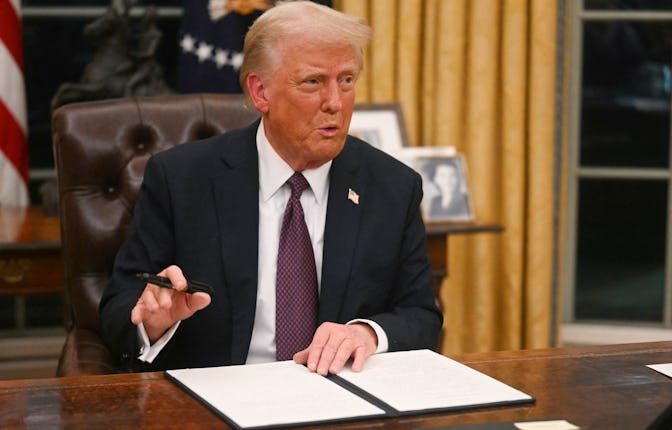We’re About To Withdraw From the World Health Organization — Again
On day one, Trump starts the wheels turning to get out of the WHO.

On day one of his presidency, President Donald Trump has initiated the process of withdrawing the United States from the World Health Organization (WHO) for the second time in less than five years. This decision has sparked a wave of backlash among health experts and political analysts alike. The implications of such a move could be far-reaching, particularly in a world still grappling with the aftermath of global health crises.
The Context Behind Trump's Decision
Trump's relationship with the WHO has been tumultuous since he first took office in 2017. His administration has frequently criticized the organization for its handling of various health issues, particularly during the COVID-19 pandemic. The President has claimed, without evidence, that the WHO is biased towards China and has failed to provide adequate support to member countries during health emergencies.
Experts warn that withdrawing from the WHO could significantly weaken global health defenses against emerging infectious diseases. According to a 2021 report from the Global Health Security Index, countries that engage actively with international health organizations are better equipped to respond to outbreaks and pandemics. The U.S., as one of the largest contributors to WHO funding, plays a crucial role in shaping global health policies and responses.
A study published in The Lancet highlights that collaborative efforts through organizations like WHO have historically led to improved health outcomes worldwide. For instance, during the Ebola outbreak in West Africa (2014-2016), coordinated international responses facilitated by WHO were essential in controlling the spread of the virus. Experts argue that pulling out now could hinder similar future efforts against diseases like COVID-19 or potential new outbreaks.
Political Ramifications
The political ramifications of this decision extend beyond public health. Critics argue that withdrawing from WHO could isolate the U.S. on the global stage, diminishing its influence in international health matters — sending a message of retreat rather than leadership.
Moreover, Trump's rhetoric surrounding military or economic actions against entities associated with WHO raises concerns about escalating tensions between nations over public health strategies. The potential for conflict could distract from essential cooperation needed to combat global health threats effectively.
Public opinion on Trump's decision remains divided. While some supporters applaud his stance against perceived inefficiencies within international organizations, the majority express concern about what this means for America's role in global health governance. A recent poll indicated that 62% of Americans believe it is essential for the U.S. to remain engaged with international health organizations like WHO.